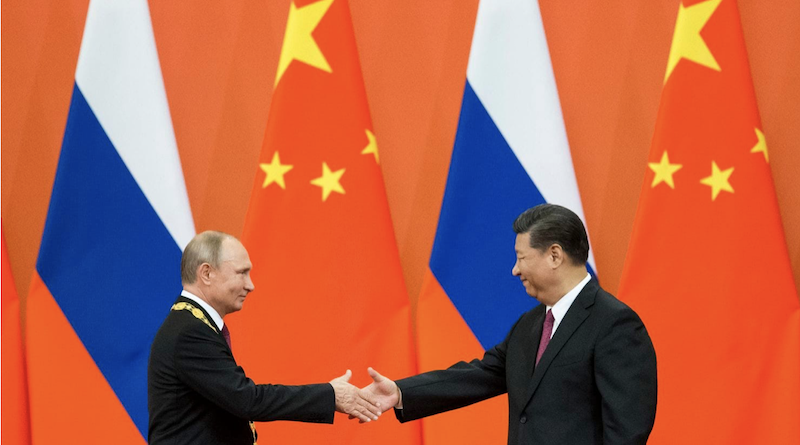China and Russia Are Not Breaking Up Anytime Soon
By Daniel W. Drezner, Professor of International Politics at the Fletcher School of Law and Diplomacy at Tufts University
Two weeks ago, I was in Moscow for a conference — part of a series — on the future of the Russian-American relationship. One of my takeaways from that meeting was that the state of the bilateral relationship is pretty bad and the best that anyone could hope for in the next few years was not making anything worse. And no, Attorney General William Barr’s summary of the special counsel’s report does not alter that conclusion.
That said, this was not my biggest takeaway from my week in Moscow. The most important conclusion is that the entente between Russia and China that has emerged over the past decade will not be disrupted anytime soon.
The reason this matters should be obvious. If one believes the current U.S. National Security Strategy, the United States is prioritizing conflict among the great powers as the primary threat. As the NSS states, “China and Russia challenge American power, influence, and interests, attempting to erode American security and prosperity. They are determined to make economies less free and less fair, to grow their militaries, and to control information and data to repress their societies and expand their influence.” If Russia and China are banding together, that would certainly affect U.S. strategic thinking.
The NSS also states that “after being dismissed as a phenomenon of an earlier century, great power competition returned.” The key word here is “competition.” For the past decade, I have heard many an international relations thinker posit that the Moscow-Beijing entente was ephemeral. After all, the two countries border each other. They vie for influence in Central Asia and the Far East. China’s large population and voracious demand for raw materials makes an underpopulated Siberia an awfully interesting region to them. As Central Asia trades more with China, Beijing’s influence in the region will naturally grow. The logic of geopolitics suggests that as China rises, Russia should feel more insecure about it, and turn toward the United States.
It is also worth noting that the Russia-China entente is not all that deep. Anja Manuel of RiceHadleyGates captured this thinking in September when she wrote in the Atlantic that, “Beyond the hype, so far there is little sign of the intense cooperation that exists between the U.S. and its military allies in Europe and Japan.” This is empirically true.
Manuel also wrote, however, that “China and Russia will resolutely support each other if cornered,” and this is where we come to the Trump administration’s truly impressive strategic blunder. The administration’s China policy has been articulated quite clearly, and demonstrates some serious hostility toward Beijing. While Trump himself has had nothing but nice things to say about Russian President Vladimir Putin, his foreign policy team feels differently. It is not surprising that both Putin and Chinese President Xi Jinping look at Trump with far more suspicion than they look at each other. The president has succeeded in bolstering a fragile alliance between Beijing and Moscow.
Furthermore, while Manuel may be correct on the lack of security and economic integration between the two countries, their foreign policies seem awfully coordinated as of late. A recent National Bureau of Asian Research special report noted that in the Far East, “Driven by common dissatisfaction with real or perceived Western constraints on their geopolitical ambitions, China and Russia have steadily converged in their positions on key regional strategic issues. Though the two maintain independent interests on the margins, their core aims on the Korean Peninsula appear congruent and largely complicate the United States’ pursuit of its goals.” This congruence of Russian and Chinese policy positions is also quite clear in places ranging from Iran to Venezuela.
I want to be clear about what I am not saying here. I am not saying that cooperation between Russia and China is a game-changer that requires Cold War-level efforts to combat. Nor am I saying that their entente is permanent; there are persistent frictions in their relationship. What I am saying is that their cooperation on foreign policy is growing and not shrinking, that it will complicate U.S. foreign policy going forward. Foreign policy analysts in Washington should internalize that fact as soon as humanly possible.
This piece was republished from The Washington Post.

